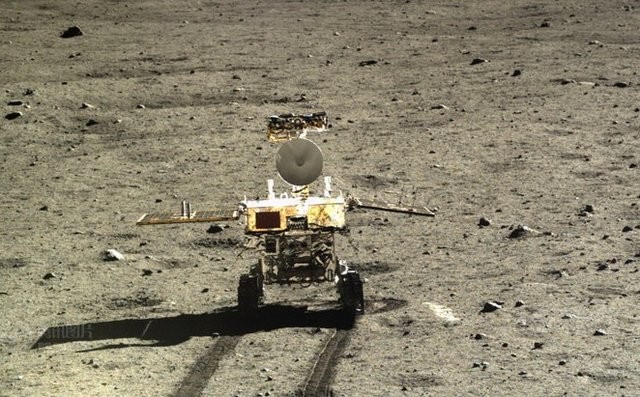Midway through its three-month lunar exploratory journey, Yutu began experiencing a "mechanical control abnormality" on the surface of the celestial body that can fluctuate between -200 degrees Fahrenheit to 200 degrees Fahrenheit over the course of an Earth month.
The scientists working under the State Administration of Science, Technology, and Industry for National Defence are exploring possible options for repairing the damaged rover whose mission was to perform astronomical observations and geological surveys after it first landed on Dec. 14.
"It is quite surprising that Yutu should experience problems at such an early stage," said China Society of Space Research's space probe committee deputy director, Dr. Jiao Weixin. Jiao further illustrates that "despite some minor problems, Opportunity, the U.S. Mars rover that also had a design lifespan of three months, is still working after almost 10 years."
As the moon rotates at a speed similar to its circulating the Earth, the moon's day-night cycle lasts for approximately 1 Earth month long, with a lunar night being about the length of an Earth fortnight. German Planetary rover specialist, Lutz Richter commented that the solar panels of Yutu have to be shielded during the lunar night to prevent damage. Richter claims that if the solar panels remain unshielded during the lunar night, the rover would be damaged beyond repair and would not be able to continue its mission.
Working under NASA and European Space Agency's German aerospace contractor Kayser-Threde, Richter conjectures that the electrical motors which close the solar panels may have been damaged by the "complicated lunar surface environment" in the S.A.S.T.I.N.D. statement.



























